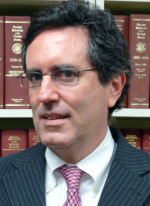2010-12-01 Steven Aftergood: Assange prosecution would be "extremely dangerous"

Speaking with Slate magazine's War Room correspondent Justin Elliott, Aftergood said that the DoJ's legal theory for pursuing WikiLeaks and Julian Assange would set "an extremely dangerous precedent."
"This is novel legal territory. Every step involves uncertainty and virgin territory, and ideally it will be left that way," says Steven Aftergood, a secrecy expert at the Federation of American Scientists. Aftergood, who has been a critic of WikiLeaks in the past, argues that "a prosecution of WikiLeaks would be a horrible precedent that in time would almost certainly be applied to other publishers of controversial information."
Elliott writes that "Many have argued that the law (Espionage Act of 1917) is unconstitutional, and, if it was actually applied broadly, would lead to the prosecution of journalists and newspapers that routinely obtain and publish classified national defense information.
'If a case could be made that WikiLeaks did not simply publish the material as a passive recipient, but that they actually solicited the release of the information, then they would be vulnerable,' Aftergood says. But it's not clear how solicitation would be defined, and it's also not at all clear if the facts of the case would bear this theory out. And, again, if this theory of the law were applied, it's hard to see how it wouldn't ensnare a journalist like Bob Woodward, who asks government officials about classified matters and then publishes the information."
Read more
Photo credit: FAS